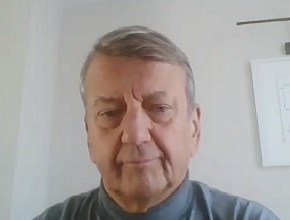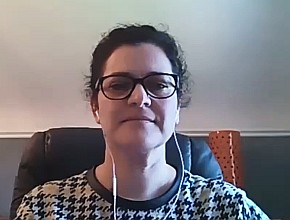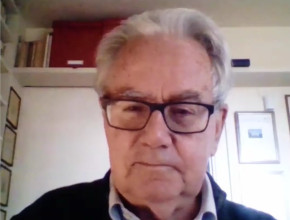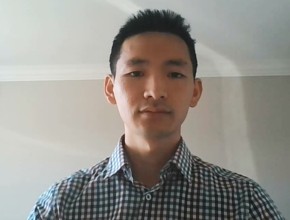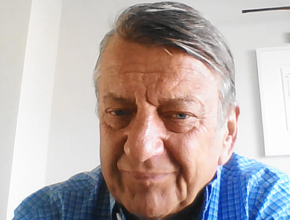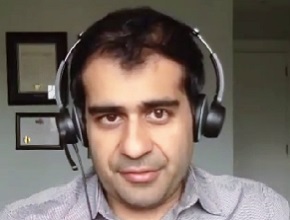Dr Jean-Louis Vincent, professor of intensive care medicine at Université libre de Bruxelles, past president of the World Federation of Societies of Intensive and Critical Care Medicine, and accomplished author and researcher, answers questions from Dr Roman Jaeschke about the current treatment options in COVID-19, including remdesivir, monoclonal antibodies, and convalescent plasma.
For part 1 of the interview, click here.
Roman Jaeschke, MD, MSc: Good morning, welcome to the next segment of Professor Jean-Louis Vincent’s instructions. We were talking about steroids for all patients admitted to the hospital and requiring oxygen, and we were talking about the very low threshold for heparin treatment, usually with a low-molecular-weight heparin but if there’s evidence of coagulopathy, moving to intravenous unfractionated heparin.
Let’s talk now about another hot topic, which I guess would be remdesivir. We’ve got some new information and we are awaiting another major trial. Professor Vincent, what’s your personal opinion [on remdesivir] these days?
Jean-Louis Vincent, MD, PhD: The current opinion is that it has probably some efficacy, but it’s not great. It’s a minor effect resulting in a shorter duration of the disease. It’s not something that is impressive. We do not give it routinely in Belgium and we do not have it available easily in Belgium and in most European centers, but we are not really complaining, because we are not convinced that this is really the drug that we need. Remdesivir can be an efficient antiviral agent, but unfortunately in patients it doesn’t seem to work so much. [16 October 2020: Newly released preliminary data from the SOLIDARITY trial are generally supporting those opinions.]
Actually, we would be more interested in the antibodies, in the cocktail of antibodies that Regeneron can make. This is more exciting, and the question there is whether we should give it directly on a compassionate basis, as Trump would benefit from it, or whether we should randomize patients to receive it. My answer to this complex question is that yes, we should do the prospective randomized controlled trial (RCT) to definitely show the efficacy of these antibodies.
However, if I was myself in an intensive care unit (ICU) with very severe coronavirus disease 2019 (COVID-19), I may actually accept not to be randomized but rather to be put in just an observational series of patients and receive it on a compassionate basis. So I’m in between the two, you see, because when it happens to you, sometimes you don’t want to be randomized […].
Roman Jaeschke: Unfortunately, we’re identifying a dilemma that a lot of people are facing. One possibility is that in a situation of a lack of supply, which I strongly suspect exists, that would be one of the reasons to give it on the randomized basis. It’s interesting that after so many years of insisting on RCTs—which I would still argue we do need to do, because who knows what those antibodies may be attacking other than spikes on the virus…
Jean-Louis Vincent: Exactly right.
Roman Jaeschke: Maybe they’re attacking your neurons as well. Who knows? I kind of agree with you that if I had an unlimited supply… Well, I don’t know what I would do, and we never know how we would behave in a time of personal crisis. So we don’t have data on that.
Jean-Louis Vincent: We could also consider a study where patients who are not too sick could be randomized, because the antibody could work in moderate severity.
Roman Jaeschke: The consequences would be much less.
Jean-Louis Vincent: And if the patient still becomes very ill, then they could benefit from the antibodies. From the experience we have now from the company, close to 300 patients, the patients with a moderate form [of COVID-19] appeared to benefit from the antibodies. So it’s not something that we should reserve for the most severe cases.
Roman Jaeschke: Right. I was just looking at the remdesivir data from the New England Journal of Medicine from yesterday, October 8, and interestingly, I don’t want to put too much emphasis on subgroup analysis but people who were ventilated or on extracorporeal membrane oxygenation (ECMO) seemed not to benefit…
Jean-Louis Vincent: Exactly right. In the most severe cases it doesn’t seem to work.
Roman Jaeschke: Again, I’m not sure how much emphasis to put on these subgroups, because it seems that steroids work in severe [cases], remdesivir works in moderate, but who knows yet?
I remember our discussion in May, when we were talking about convalescent plasma. Where are we here? You were trying to organize a study on that.
Jean-Louis Vincent: Right, and I was probably more excited about this at that time than I am today. When we look at the prospective RCT on this, it’s a little bit like remdesivir: it may have an effect, but it’s not really a very impressive result.
We tend to move from convalescent plasma to the antibody cocktail, because the convalescent plasma, as you alluded to with the antibodies, may have some side effects. Actually, in some patients it may exacerbate the cytokine response; sometimes we call it the cytokine storm, but it’s perhaps too much to speak about a storm. The release of all these mediators may actually be facilitated, amplified by the administration of convalescent plasma.
Globally it may bring some benefit, but unfortunately it’s not really impressive. We need more data and we are continuing the trials.
Roman Jaeschke: The trial eluded me. I didn’t see the report. Was it published? Are the results available? And what are they, if they are published? I somehow missed it.
Jean-Louis Vincent: There are several small trials. Some of these are rather negative, some others more positive. As you may remember, the very initial experience from China, published in the Journal of the American Medical Association (JAMA), was very positive, but these were only a few patients. It raised a lot of enthusiasm, including from me, but we had to calm down a little bit and realize that the effect, if it’s beneficial, is not significantly beneficial.
Roman Jaeschke: From the things that are most investigated, at least at the moment, I just want to mention that the newest hydroxychloroquine trial was also published yesterday, and I think it’s not on the table at the moment.
Jean-Louis Vincent: It’s over. Don’t give it. Forget about hydroxychloroquine.
Roman Jaeschke: So [when it comes to] hospitalized patients now: Dexamethasone, yes. Remdesivir, if I have it, I’ll probably give it. If I had the new monoclonal antibodies, I would not know what to do. And if I had convalescent plasma, should I give it or not? I’m sorry to put you on the spot.
Jean-Louis Vincent: I think it should still be within the context of an RCT. And personally I would actually like to be randomized.
Roman Jaeschke: OK. And in terms of any antivirals? They are still being investigated. Anything that you would insist we should use these days? Or all for clinical trials still?
Jean-Louis Vincent: The jury’s out for the anti–interleukin 6 medication. That’s still being explored in prospective RCTs, and I will also agree to be randomized myself in this type of trials.
Just to be [clear], I would still give some vitamins and oligoelements [trace elements] to my patients. I would give some zinc, vitamin D, and vitamin C. Why not? I don’t think we need a big trial on vitamin C or vitamin D in the context of COVID-19.
Roman Jaeschke: How much would you give?
Jean-Louis Vincent: Just moderate supplements. It shouldn’t be huge amounts, but just to make sure that the patient does not have a deficiency in these vitamins.
There are some other interesting things. I don’t believe very much in the antiulcer medications; this has been not very positive.
And women get the disease more commonly than men, but when women get the disease, it’s usually less severe than for men. It seems that they are protected by the estrogens. So why not take estrogens for a short period of time if you get sick? It needs to be studied. I’m not saying that I would take it.
Roman Jaeschke: I lost you for a moment when you were talking about antiulcer medications, probably H2 inhibitors. Do you mind repeating your opinion on those?
Jean-Louis Vincent: There have been some suggestions that proton pump inhibitors may perhaps decrease the severity of COVID-19, but the data are not very convincing so far. Of course, these are simple cheap medications. Trump received it, in the cocktail that he received, but I don’t think that it really works.
Estrogens may perhaps have a place. Who knows? We need to test it.
Roman Jaeschke: We need to test it.
So in your unit these days if you admit a reasonably severely ill person with COVID-19, what would be your standard order and standard cocktail? That’s the final question.
Jean-Louis Vincent: First of all, we should not forget the basic aspects, which are the proper ventilation and oxygenation—and everybody speaks about it, of course—and we should not too easily intubate the trachea, but only do it when required.
People tend to forget about the hemodynamic status and sometimes give diuretics for the lungs and then the organs are hypoperfused. With diuretics the blood volume may be reduced and the oxygen delivery to the organs may be altered. That could lead to renal failure and other organ failure. So of course we need to avoid fluid overload, but we should also avoid hypovolemia. That’s something that we have learned over the months now, and we should be very careful about the restoration of a stable hemodynamic status, making sure that the lactate levels in particular are normal or go back to normal.
Besides that, we started with the relatively liberal anticoagulation. There should at least be low-molecular-weight heparin, but we could shift to intravenous heparin therapy if there is any sign of coagulopathy.
Otherwise, we would give dexamethasone in patients who are in the ICU, and why not add a little bit of vitamins? A little bit of zinc just to make sure that there are no deficiencies. Then start nutrition relatively early, because these patients may lose much weight and be weak for very long periods. We should not wait. Even when the patient is not malnourished to start with, I think that nutritional support would be indicated early on to try to limit the muscle wasting and weight loss.
Roman Jaeschke: I want to thank you very much for this journey and for these current personal clinical practice guidelines. It sounds like we are learning, so let’s hope we’ll keep learning and keep improving the overall prognosis. I really appreciate your time.
Jean-Louis Vincent: We still have a lot to do. I agree.
Roman Jaeschke: Thank you so much and have a good day.
Jean-Louis Vincent: Thank you. It’s a pleasure.
 English
English
 Español
Español
 українська
українська

